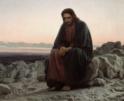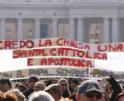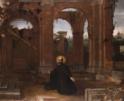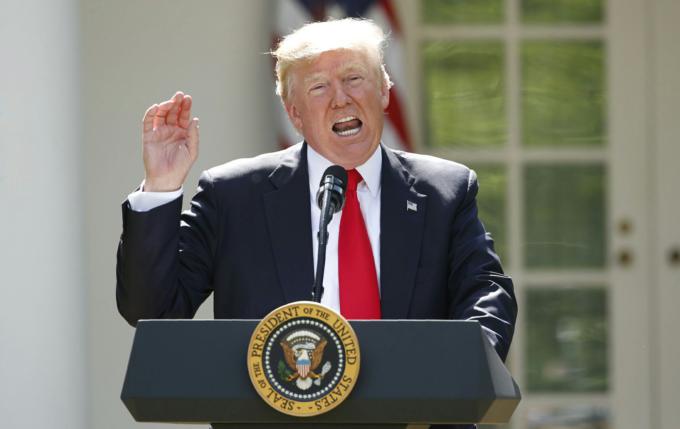
Spirituality
So here is the question: Might a layperson who accepted those general principles, and even the authority of the "scientific consensus" as well, think it a good idea for the U.S. to withdraw from the Paris accord?
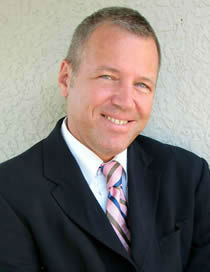
Pakaluk
How should a Catholic view President Trump's decision to withdraw the United States from the Paris Climate Accord? Was it a "slap in the face" to the Vatican, as Bishop Marcelo Sanchez Sorondo claimed? After all, Pope Francis had timed the publication of his encyclical, "Laudato Si', "On the Care for our Common Home," so that it would appear in time for the Paris meeting, to support that accord.
Bishop Sorondo also implied that there could be no good reason for withdrawing from the accord, except for denying human-caused global warming. To do so, he said, is like claiming that the earth is flat. Only someone whose economic interests were aligned with big oil could hold such an absurd view, he said.
One might wonder why the good bishop recommends friendly dialogue with pro-abortion critics of Church teaching such as Paul Ehrlich, yet can find no goodwill in those who disagree with his approach to climate change. Something is wrong here. Some thoughts.
First, as a general rule, the laity have primary responsibility for the temporal sphere. I'm not saying this of my own accord. It is the teaching of the magisterium of the Church in the Second Vatican Council: "The laity must take up the renewal of the temporal order as their own special obligation" (Decree on Lay Apostolate, n. 7). The typical role of pastors in contrast is to teach general principles: "Pastors must clearly state the principles concerning the purpose of creation and the use of temporal things," (ibid.).
Thus there is a complementarity characteristic of any peaceful social order: pastors state general principles in matters of faith and morals, but then leave it to the laity, in freedom, to use their judgment in particular applications. The laity can rightly claim freedom to apply principles by their own lights with goodwill.
Obviously, this is a schematic outline. Pastors will often give applications to illustrate the principles. They will naturally recommend some applications rather than others. But when they do so, the principles alone are binding. Judgments by pastors about particular cases in matters of prudence will merely have weightiness -- depending on the office, graces, and wisdom of the pastors.
When pastors or the laity step out of these typical roles, it helps if each makes clear the basis of his claims. For example, when a layperson says something definitive about Church teaching, he should make it clear (as I did above) that he is not speaking on his own authority.
Likewise, suppose a climate scientist were ordained a bishop: if he later spoke on climate science, he ought to say, "speaking as someone once trained in climate science," so that it was clear that he was not trying to apply, or rather misapply, his clerical authority.
"Laudato Si'" observes this principle. When in a brief passage it refers to climate change, it says "A very solid scientific consensus indicates that we are presently witnessing a disturbing warming of the climatic system." That is, it appeals to scientific not religious authority. The reader, then, is free to accept that supposed scientific consensus, or to reject it -- perhaps at his peril.
(But one might want to quibble. Can the Church really judge when a consensus is "very solid"? How can it be a purely "scientific" consensus that a warming is "disturbing"? -- as that's a normative claim. And anyway how can a consensus be "very solid" when, as an inspection of the scientific literature shows, there is almost no consensus on any of the details?)
But the vast bulk of the encyclical is a meditation on general principles, such as: the world as a created reality deserves our respect and care; human beings should exercise stewardship over the earth (not unbridled "domination"); extremes of wealth and poverty should be overcome (and thus models of development which cannot be widely generalized should be rejected); technology should be examined to see whether it truly serves the human good; the rich should not freeload off the poor; and so on.
So here is the question: Might a layperson who accepted those general principles, and even the authority of the "scientific consensus" as well, think it a good idea for the U.S. to withdraw from the Paris accord?
This is a prudential question which a Catholic layperson has freedom to decide by his own best lights. But there are abundant reasons to think that such a decision would be defensible:
-- The Accord is regarded as a treaty by most countries, and yet it was never ratified by the U.S. Senate, as the Constitution requires.
-- The Accord is meaningless, as countries are free to set their own quotas; some big polluters have set no quotas; there are no enforcement mechanisms; and even if the strictest quotas were followed, global warming would not be slowed below putatively catastrophic levels.
-- A merely symbolic agreement among hypocritical politicians usually does more harm than good.
-- It's not clear why the U.S. (almost alone) should be bankrolling it.
You may disagree with these reasons, but they are serious reasons. What a Vatican cleric should therefore say, in my view, about Trump's decision is something along the lines, "The Vatican as a political entity takes a different approach. We will continue to attempt to persuade him otherwise. I recognize as a cleric that the president has freedom to decide what is best and that that his position is not indefensible."
- Michael Pakaluk is Professor of Ethics and Social Philosophy in the Busch School of Business at The Catholic University of America. His book on the gospel of Mark, ‘‘The Memoirs of St. Peter,’’ is available from Regnery Gateway.
Recent articles in the Spirituality section
-
Why is Lent 40 days?Michael Pakaluk
-
The eloquent ambiguity of 'I believe'Bishop Robert Barron
-
You don't get what you pay forMichael Pakaluk
-
The witness of a consecrated lifeBishop Robert Barron
-
What is enlightenment? -- among angels and usMichael Pakaluk

